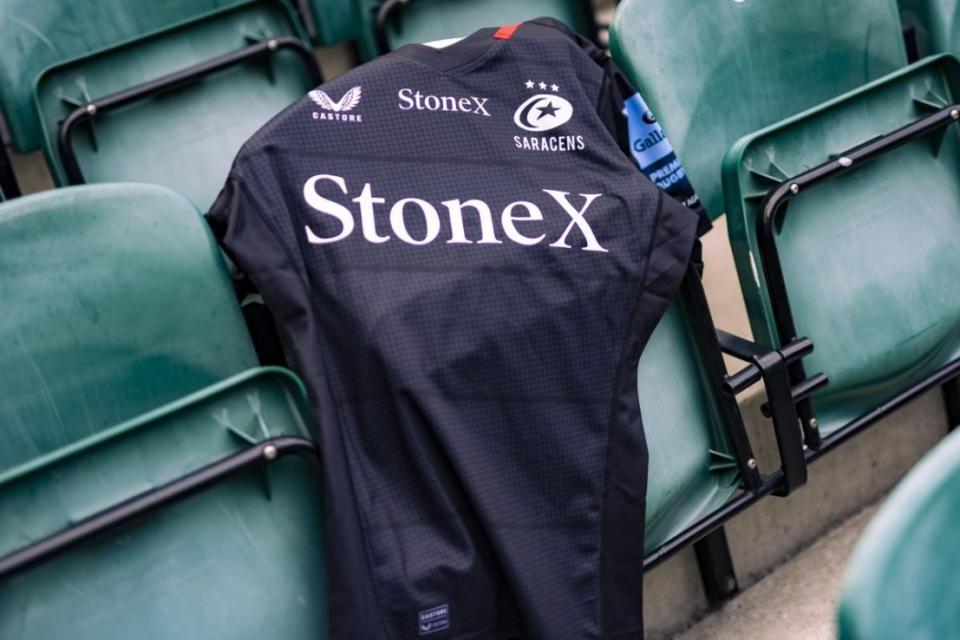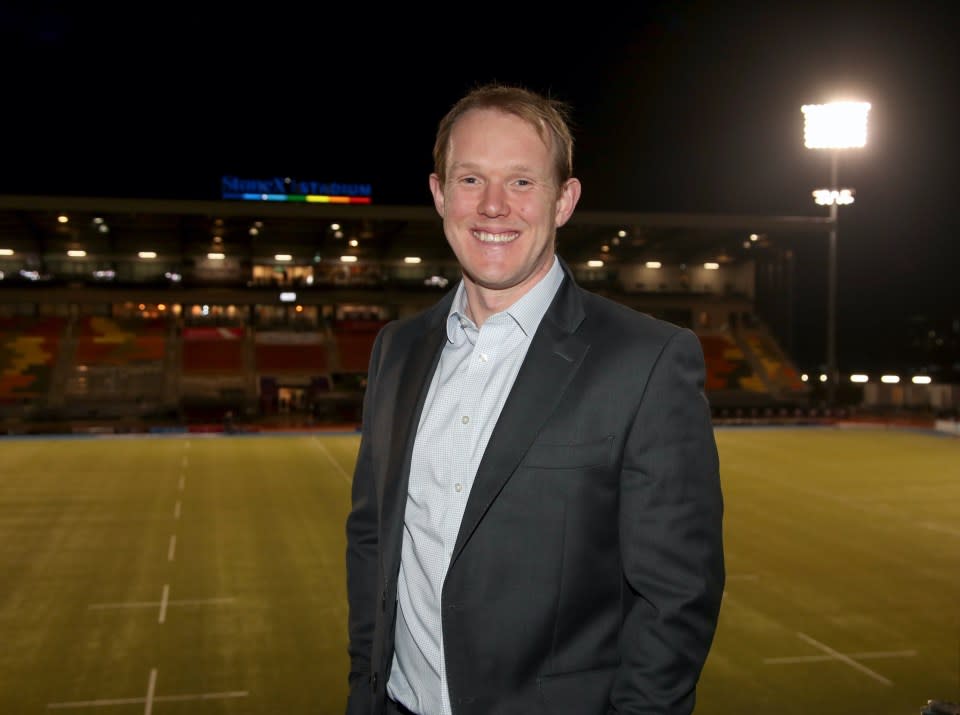
Saracens Rugby’s new chief executive Mark Thompson discusses TV broadcast deals, the club’s journey following its recent £5m loss, and the state of rugby union and its future.
Being a rugby bigwig is not far from the most stressful job in sports governance; the English game is a borderline failure and the clubs have one defeat after another.
But Mark Thompson, formerly of sports marketing agency Two Circles and Premier League football team Burnley, is taking on the challenge as Premiership Rugby’s new chief executive.
Saracens CEO is a new generation of data-driven bosses and met City AM to discuss the club’s financial situation following a £5 million loss, the broadcast landscape and the new Premiership season, which begins this week at Gloucester.
Saracens chasing black?
“My job, like anyone running a business, is to reduce the onus on shareholders, so they believe we can actually generate that path to profitability,” he says.
“But at the same time, we made a strategic decision. Although some other clubs might be reluctant to spend the entire salary cap, we want to be competitive and hope to be competitive domestically and in Europe.
“This means that we will not break even in the next two or three years, and that a certain part of our cost base will not decline, which means that profitability will become impossible in the short term.
“Selling every game will not materially change our profits and losses. Last year sponsorship revenue was less than £5m so you can increase it by 50 per cent and the reality is it’s still £1m here, £2m over there. It’s not £20 million.
“The reality is that women’s football will not be profitable in the short term. But it’s important to us, not only because we think it’s the right thing to do, but also because we think there will be growth. We also believe in what our women’s team brings to the wider story of the club that we are trying to build commercially.
Repairing rugby through television?
Clubs have not only had to deal with the fact that England’s top flight has shrunk from 13 teams to 10 – following the collapse of Worcester Warriors, Wasps and London Irish – but domestic broadcast deals with TNT Sports and level Continental with Premier Sports have not seen an increase in funds in the bank for clubs.
Thompson admits Saracens’ cup is “slightly smaller” than before, saying: “There are challenges with rugby. I think we are going to face a difficult period of 12 to 24 months. The next release cycle [going out to tender in the next 12 months] will be the key.
Asked if the Champions Cup TV rights moved to Premier Sports, a little-used streaming service in England, was disappointing, Thompson said it’s “very difficult to define disappointment”, but that the market is “softer” and there is more of an onus to be a “premium rights” sport.
“The reality is that rugby does not fit the current definition of premium rights,” says Thompson.
“I have confidence in the people of PRL [Premiership Rugby], [chief executive] Simon Massie-Taylor is very good at what he does, and we have the best we could have gotten.
Saracens saw massive changes over the summer. Player departures – all but Owen Farrell, Thompson insists, were planned – as the club signed a new professional playing partnership (PGP) that will shape English rugby for the next eight years.


Thompson Trust
“There will be an element of feeling along the way, but we trust the people in the room on that,” he adds.
Saracens are also keen, having started talks with director of rugby Mark McCall over a new deal. Thompson described the Northern Irishman as “essential” to their plans, but remained tight-lipped about the progress of the discussions.
This year feels like a whole new era for Saracens: a new general manager, a new captain, a slew of new players and a new approach to business. Key partners have remained and expanded their operations, in the case of main sponsor Stone
Thompson’s final message, however, is to throw his weight behind promotion, relegation and a path forward. Saracens themselves needed it after being penalized for salary cap breaches five years ago this autumn.
“We need to ensure that people who invest large sums of money in loss-making Premiership clubs have confidence in the future of their investment,” he says.
“Because what rugby doesn’t have at the moment is a history of people choosing these investments while others chose to stop theirs.
“If we lose other clubs at the top, it will fundamentally become quite difficult to achieve what the PGP and others are trying to do.
“But whether it’s rewarding excellence or rewarding additional investment, there has to be a pathway for people to come in and add value.”